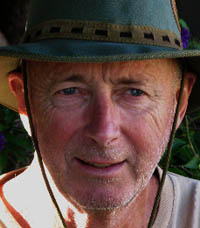Shattered dreams
When I heard the news, on 11th November 1965, that Rhodesia (now Zimbabwe) had declared UDI I was devastated. I had just been selected to represent the combined British tobacco companies in a party of cricketers to tour Rhodesia for six weeks. We were to be the guests of the Rhodesian tobacco farmers and would have, by all accounts, been royally accommodated and entertained. In addition the scheduled cricket matches would have been of a generally higher standard than our regular weekend encounters at club level. All expenses including an allocation of ‘fun’ money for personal use were to be provided by the British tobacco companies and our salaries would continue to be paid as though we were still making ‘cigarettes’.We had even been fitted for tour blazers; my bags were packed and I nearly had one foot on the plane. With one stroke of a pen a young man’s dream of visiting Africa was shattered by a bunch of politicians on the other side of the world. [See Note 1]Although I visited the Gambia, Kenya and Morocco between 1979 and 1983 it wasn’t until November 1990, 25 years after Rhodesia’s Prime Minister Ian Smith made the fateful declaration which scuppered the tour, that I eventually made it to South Africa.
First stop Durban
As I stepped off the plane to a typically hot and humid Durban day fellow passengers must have been questioning my sanity as I was heard to say, without explanation; ‘So how come a journey that normally takes around 12 hours took a record breaking 25 years!!’
Having waited so long I wasn’t about to waste a minute of my 3 month stay especially as there was business to be done between socialising, exploring and learning as much as I could about South Africa. My business partner’s son who was already in Durban had rented an apartment on the beach front at Umhlanga Rocks (just north of the City) which was to be a temporary home for the three bachelors.
Out of an English winter and into a South African summer it didn’t take long before I was frolicking in the warm waters of the Indian Ocean prior to frolicking in the boisterous Durban night scene. Swimming in the Durban sea needs to be undertaken with great care. The surf is big and so are the sharks. I think I took less care in the evenings and was probably in more danger of drowning in the excessive hospitality that Durban was renowned for in those days.
Exciting but hairy drive south
The first week had flashed by and we drove out of Umhlanga just as the sun was rising. David and I were joined by another David on a journey down the N2 through Kokstad which hopefully would see us arrive in Umtata before nightfall. Umtata which has since been renamed Mthata was the capital of the former Homeland of Transkei. [See Note 2]I was lucky to be a passenger as South African David chose to drive the whole way. I over-indulged on every inch of the breath-taking scenery and although it was late in the day and I saw no signs to indicate that we had crossed a border. However, there was a marked change in the landscape which rather gave the game away. I noticed that one minute the cattle were all in the fields nicely fenced off from the road; suddenly they were in the road and the only fences visible were derelict. It didn’t take much to figure out that we were no longer in Natal but had crossed the invisible line and were now in the Transkei.
Night was falling fast and we were still quite a way from our destination, Umtata. The condition of the roads had deteriorated so the combination of failing light, potholes in shadow and the occasional cow in the headlights lengthened the journey time appreciably. Traveller accommodation did not exist between towns which, in any event, had a lot of wilderness between them. So ploughing on to Umtata was the only option; a period of the journey which was undertaken with some trepidation and a few scary moments.
Thank heaven that South African David knew these parts well, spoke fluent Xhosa and had the foresight to put a 24 pack case of Castle in the boot.
[Why he did will be revealed in Part 2][Note 1] The Unilateral Declaration of Independence (commonly referred to as UDI) was a statement adopted by the Cabinet of Rhodesia on 11 November 1965, announcing that Rhodesia, a British territory in southern Africa that had governed itself since 1923, now regarded itself as an independent sovereign state. The culmination of a protracted dispute between the British and Rhodesian governments regarding the terms under which the latter could become fully independent, it was the first unilateral break from the United Kingdom by one of its colonies since the United States Declaration of Independence nearly two centuries before.
Britain, the Commonwealth and the United Nations all deemed Rhodesia's UDI illegal, and economic sanctions, the first in the UN's history, were imposed on the breakaway colony. Amid near-complete international isolation, Rhodesia continued as an unrecognised state with the assistance of South Africa and Portugal. (Source Wikipedia)
[Note 2]During the Apartheid years 10 Bantustans (Homelands), which were areas allocated to blacks, were demarked for independence. After the end of white rule in 1993 the Homelands experiment was abandoned and South African citizenship was restored to the residents and the homelands were re-integrated again with the provinces.James King is a writer, blogger and photo-artist. Born in England, he travelled to over 20 countries and in 1995 emigrated to South Africa. In 2011 James moved to Thailand, in semi-retirement, where he built and sold one house, renovated another, wrote various e-books and started a blog (jamoroki.com).

